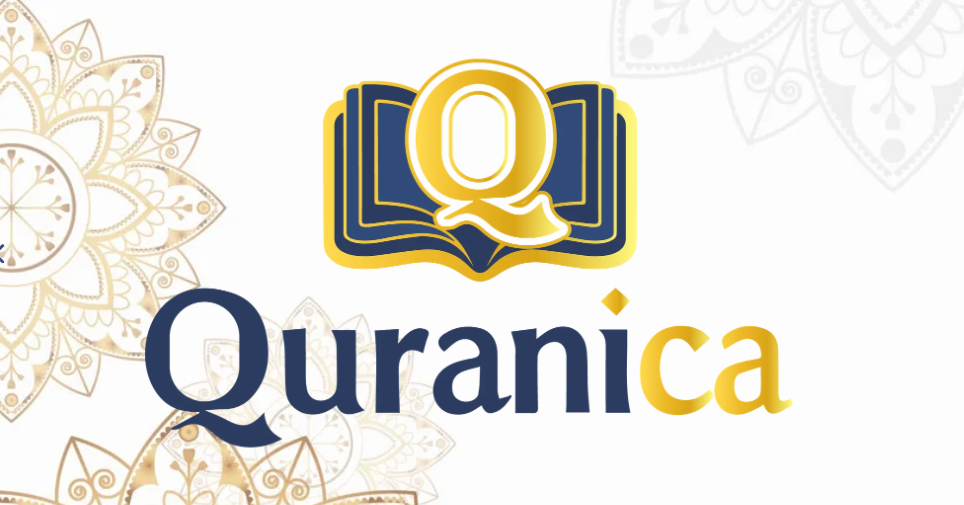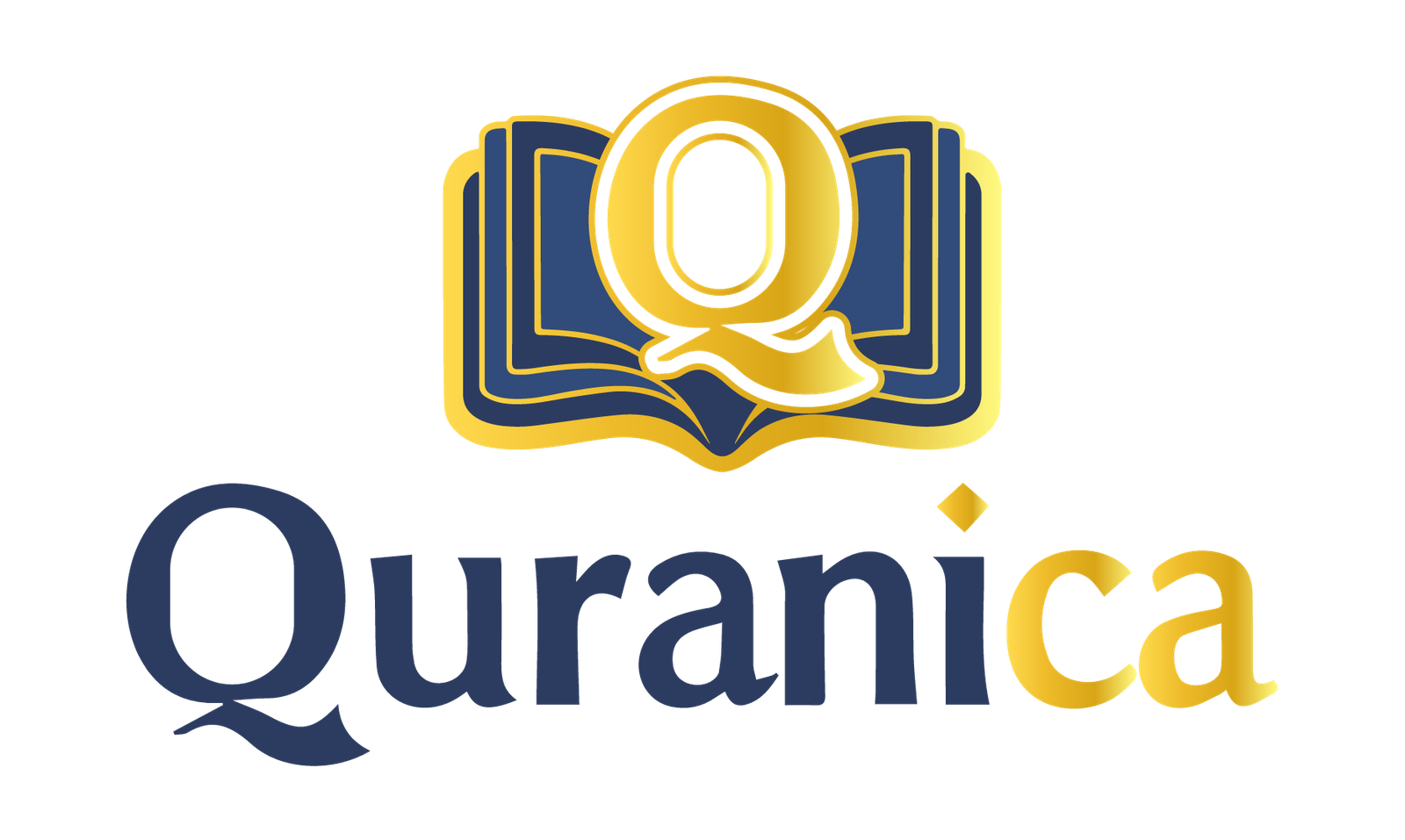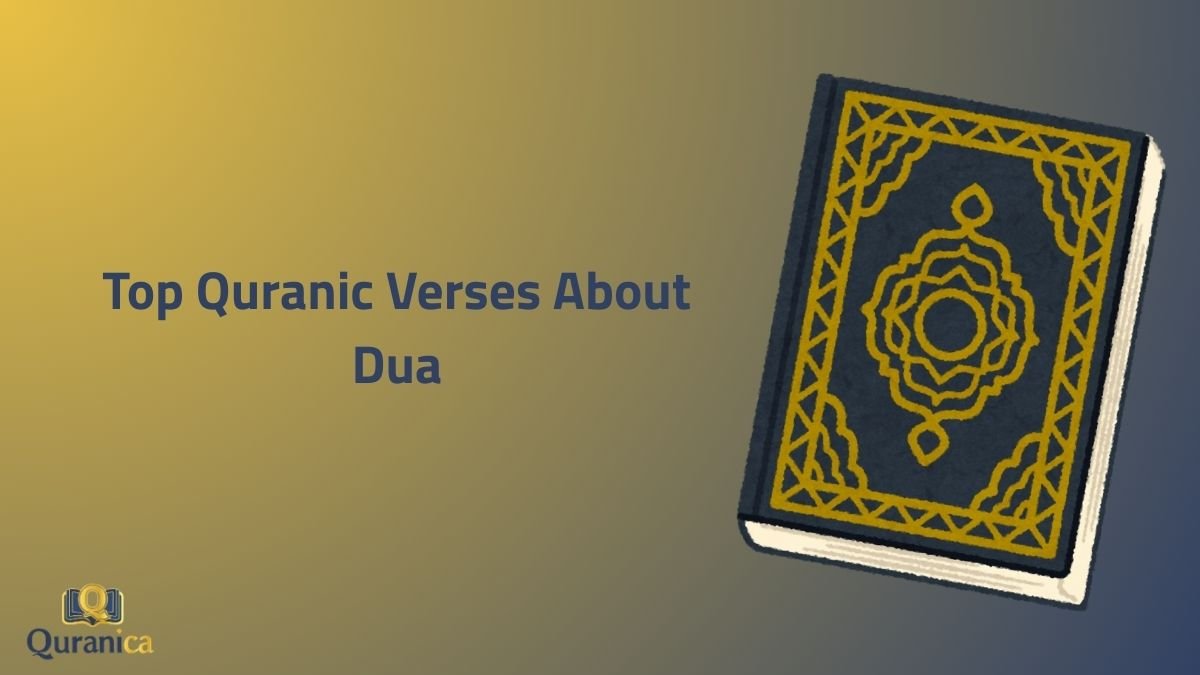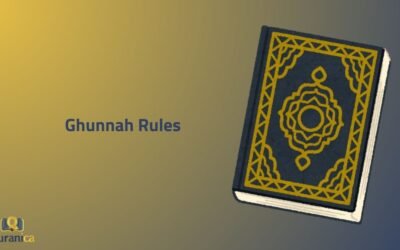Dua is our direct line, our intimate conversation with our Creator. The Quran is filled with guidance and encouragement regarding this beautiful act of worship.
The Quranic verses on Dua teaches us not just what to ask for, but how to ask, and assures us that He is listening.
Today, I want to share with you some Quranic quotes about Dua that aren’t just words; they are divine assurances and invitations. Let’s reflect on them together, insha’Allah. We’ll look at the original Arabic, its transliteration for those learning, and a clear English translation.
1. An Inviting Quranic Quote About Dua: Allah is Near
Often, when we feel troubled or alone, Shaitan might whisper doubts. But Allah, in His infinite Mercy, reassures us directly. This verse is like a warm embrace from our Creator.
“وَإِذَا سَأَلَكَ عِبَادِى عَنِّى فَإِنِّى قَرِيبٌ ۖ أُجِيبُ دَعْوَةَ ٱلدَّاعِ إِذَا دَعَانِ ۖ فَلْيَسْتَجِيبُوا۟ لِى وَلْيُؤْمِنُوا۟ بِى لَعَلَّهُمْ يَرْشُدُونَ“
“Wa idhaa sa’alaka ‘ibaadee ‘annee fa innee qareeb; ujeebu da’watad-daa’i idhaa da’aan; falyastajeeboo lee walyu’minoo bee la’allahum yarshudoon.”
“And when My servants ask you, [O Muhammad], concerning Me – indeed I am near. I respond to the invocation of the supplicant when he calls upon Me. So let them respond to Me [by obedience] and believe in Me that they may be [rightly] guided.” [Surat al-Baqara 2:186]
SubhanAllah! Notice the incredible intimacy here. Allah doesn’t say “Tell them I am near.” He says, “fa innee qareeb” – “Indeed, I am near.” It’s a direct, personal assurance.
And look at the beautiful word قَرِيبٌ (Qareeb). It implies closeness in knowledge, in hearing, in awareness, and in the ability to respond immediately.
Allah hears the faintest whisper of your heart. Understanding this one word, Qareeb, in its original Arabic truly deepens the comfort this verse provides. It’s a reminder that learning the language of the Quran opens doors to feeling its message more profoundly.
We have structured programs designed for your needs if you are wishing to understand the meaning via Online Quran Tafseer or Quranic Arabic courses.

2. A Quranic Command to “Call Upon Me” and the Promise of Response
Here, Allah (SWT) not only permits us but commands us to call upon Him, coupling it with a powerful promise.
“وَقَالَ رَبُّكُمُ ٱدْعُونِىٓ أَسْتَجِبْ لَكُمْ ۚ إِنَّ ٱلَّذِينَ يَسْتَكْبِرُونَ عَنْ عِبَادَتِى سَيَدْخُلُونَ جَهَنَّمَ دَاخِرِينَ”
Wa qaala Rabbukumud ‘oonee astajib lakum; innal-ladheena yastakbiroona ‘an ‘ibaadatee sayadkhuloona jahannama daakhireen.
“And your Lord says, “Call upon Me; I will respond to you.” Indeed, those who disdain My worship will enter Hell [rendered] contemptible”.” [Ghafir 40:60]
Feel the power in “ٱدْعُونِىٓ أَسْتَجِبْ لَكُمْ” (Ud’oonee astajib lakum). It’s a direct command followed immediately by the result: “Call upon Me; I will respond to you.” The connection is instant.
Notice the structure – the command (“Ud’oonee“) comes from Rabbukum (Your Lord), emphasizing His authority and care, and the response (“astajib lakum“) comes directly from Him.
Read more about: Quranic Verses on Helping the Needy In Arabic And English
3. A Quranic Verse About Humility in Dua
While Allah promises to respond, He also guides us on the manner in which we should approach Him in our Dua.
“ٱدْعُوا۟ رَبَّكُمْ تَضَرُّعًۭا وَخُفْيَةً ۚ إِنَّهُۥ لَا يُحِبُّ ٱلْمُعْتَدِينَ”
Ud’oo Rabbakum tadarru’anw wa khufyah; innahoo laa yuhibbul mu’tadeen.
“Call upon your Lord in humility and privately; indeed, He does not like transgressors.” [Al-A’raf 7:55]
This verse teaches us the beautiful etiquette (adab) of Dua. Allah instructs us to call upon Him “تَضَرُّعًۭا” (tadarru’an) and “خُفْيَةً” (khufyah).
Tadarru’an isn’t just ‘humility’; it carries a sense of utter devotion, submission, showing your lowliness and need before the Almighty.
Khufyah means ‘in secret’ or ‘privately’. This points towards sincerity – your Dua is between you and Allah, not for show. It protects the purity of your intention.
Reciting these verses correctly, with proper Tajweed, truly enhances our connection and the sincerity of our plea. At Quranica, we have dedicated ‘Learn Quran with Tajweed‘ classes designed specifically for non-Arabs, helping you pronounce Allah’s words beautifully.

4. A Quranic Quote About Invoking Allah By His Beautiful Names
Allah has revealed His beautiful names (Asma ul Husna) to us, and He encourages us to use them when we supplicate, adding depth and focus to our requests.
“وَلِلَّهِ ٱلْأَسْمَآءُ ٱلْحُسْنَىٰ فَٱدْعُوهُ بِهَ”
“Wa lillaahil Asmaaa’ul Husnaa fad’oohu bihaa.”
“And to Allah belong the best names, so invoke Him by them.” [Al-A’raf 7:180]
Allah tells us He possesses (Al-Asmaaa’ul Husnaa) – the Most Beautiful Names. Then He commands: “فَٱدْعُوهُ بِهَا” (fad’oohu bihaa) – “so invoke Him by them”.
When you call upon “Ya Rahman” (O Most Merciful), you are appealing to His vast Mercy. When you call “Ya Razzaq” (O Provider), you focus on His power to provide.
Learning these Names and their meanings, often deeply rooted in the richness of the Arabic language, truly elevates one’s supplication.
Read more about: Quranic Verses: 20 Beautiful And Powerful Quranic Quotes in Arabic and English
5. A Quranic Example of Sincere, Secret Supplication
The Quran not only gives us commands and guidance on Dua but also shares profound examples through the stories of the Prophets. The supplication of Prophet Zakariya (peace be upon him) beautifully illustrates the intimacy and sincerity discussed earlier, particularly the aspect of calling upon Allah privately.
“إِذْ نَادَىٰ رَبَّهُۥ نِدَآءً خَفِيًّۭا”
“Idh naadaa Rabbahoo nidaaa’an khafiyyaa”
“When he called to his Lord a call in secret,” [Surah Maryam 19:3]
The crucial phrase here is “نِدَآءً خَفِيًّۭا” (nidaaa’an khafiyyaa) – “a call in secret”. This relates to the instruction given in Surah Al-A’raf (verse 55, mentioned previously) to call upon Allah “خُفْيَةً” (khufyah – privately).
And the word “نِدَآءً” (nidaa’an – a call) itself implies an earnest, heartfelt cry or appeal.
6. A Quranic Verse on Dua in Distress and Acknowledging Allah’s Oneness
Times of extreme hardship often serve to draw us closer to Allah, stripping away all distractions and leaving only pure, sincere reliance.
The Dua of Prophet Yunus (Jonah, peace be upon him), offered from within the belly of the great fish, stands as one of the most potent examples of seeking deliverance through the profound acknowledgment of Allah’s absolute perfection and one’s own human fallibility.
“وَذَا ٱلنُّونِ إِذ ذَّهَبَ مُغَـٰضِبًۭا فَظَنَّ أَن لَّن نَّقْدِرَ عَلَيْهِ فَنَادَىٰ فِى ٱلظُّلُمَـٰتِ أَن لَّآ إِلَـٰهَ إِلَّآ أَنتَ سُبْحَـٰنَكَ إِنِّى كُنتُ مِنَ ٱلظَّـٰلِمِينَ ﴿٨٧﴾ فَٱسْتَجَبْنَا لَهُۥ وَنَجَّيْنَـٰهُ مِنَ ٱلْغَمِّ ۚ وَكَذَٰلِكَ نُۨجِى ٱلْمُؤْمِنِينَ ﴿٨٨﴾”
“Wa dhan nooni idh dhahaba mughaadiban fazanna al lan naqdira ‘alayhi fanaadaa fiz zulumaati al laaa ilaaha illaaa Anta Subhaanaka innee kuntu minaz zaalimeen. (87) Fastajabnaa lahoo wa najjaynaahu minal ghamm; wa kadhaalika nunjil mu’mineen. (88)”
“And [mention] the man of the fish [Jonah], when he went off in anger and thought that We would not decree [anything] upon him. And he called out within the darknesses, “There is no deity except You; exalted are You! Indeed, I have been of the wrongdoers.” (87) So We responded to him and saved him from the distress. And thus do We save the believers. (88)” [Surah Al-Anbiya 21:87-88]
This specific Dua encapsulates a powerful formula: affirming Allah’s sole right to worship, glorifying Him, and acknowledging one’s own shortcomings and need for forgiveness.
Notice the immediacy of Allah’s response in the following verse: “فَٱسْتَجَبْنَا لَهُۥ” (Fastajabnaa lahoo – So We responded to him) and the subsequent universal principle and promise: “وَكَذَٰلِكَ نُۨجِى ٱلْمُؤْمِنِينَ” (wa kadhaalika nunjil mu’mineen – And thus do We save the believers).
7. A Quranic Dua for Ease, Forgiveness, and Victory
The concluding verses of Surah Al-Baqarah are treasures containing comprehensive supplications taught directly by Allah. They address inherent human limitations—forgetfulness, error, and limited capacity—while earnestly seeking Divine mercy, pardon, forgiveness, and support against adversity. These verses are a profound embodiment of reliance (Tawakkul) and humility before Allah.
“…رَبَّنَا لَا تُؤَاخِذْنَآ إِن نَّسِينَآ أَوْ أَخْطَأْنَا ۚ رَبَّنَا وَلَا تَحْمِلْ عَلَيْنَآ إِصْرًۭا كَمَا حَمَلْتَهُۥ عَلَى ٱلَّذِينَ مِن قَبْلِنَا ۚ رَبَّنَا وَلَا تُحَمِّلْنَا مَا لَا طَاقَةَ لَنَا بِهِۦ ۖ وَٱعْفُ عَنَّا وَٱغْفِرْ لَنَا وَٱرْحَمْنَآ ۚ أَنتَ مَوْلَىٰنَا فَٱنصُرْنَا عَلَى ٱلْقَوْمِ ٱلْكَـٰفِرِينَ”
“…Rabbanaa laa tu’aakhiznaaa in naseenaaa aw akhtaanaa; Rabbanaa wa laa tahmil ‘alaynaaa isran kamaa hamaltahoo ‘alal ladheena min qablinaa; Rabbanaa wa laa tuhammilnaa maa laa taaqata lanaa bih; wa’fu ‘annaa waghfir lanaa warhamnaa; Anta Mawlaanaa fansurnaa ‘alal qawmil kaafireen.”
“…Our Lord, do not impose blame upon us if we have forgotten or erred. Our Lord, and lay not upon us a burden like that which You laid upon those before us. Our Lord, and burden us not with that which we have no ability to bear. And pardon us [wa’fu ‘annaa]; and forgive us [waghfir lanaa]; and have mercy upon us [warhamnaa]. You are our protector [Mawlaanaa], so give us victory over the disbelieving people.” [Surah Al-Baqarah 2:286]
This beautiful sequence of pleas consistently begins with the intimate address “رَبَّنَا” (Rabbanaa – Our Lord), highlighting the close relationship between the supplicant and the Sustainer.
Your Quran Journey Starts with Quranica
Here at Quranica, we are dedicated to making this journey accessible and enriching for everyone.
Our teachers are native Arabs, mostly from Egypt and graduates of the renowned Al-Azhar University, carrying authentic knowledge.
We specialize in teaching Quran, Arabic, and Islamic Studies specifically to non-Arabs, understanding the unique challenges and joys of this path.
- Noorani Qaida
- Online Quran Classes for Beginners.
- Seeking to perfect your pronunciation with Tajweed courses (for beginners, adults, sisters, or advanced levels).
- Aspiring to memorize Allah’s words through our Hifz programs (for kids, adults, ladies).
- Online Quran Tafseer
- Quranic Arabic courses.
- And more…
Join our family at Quranica TODAY.









0 Comments